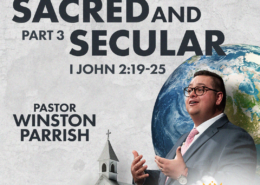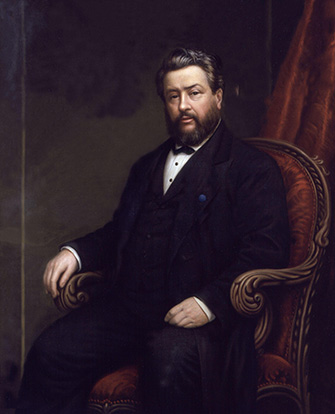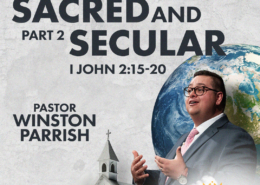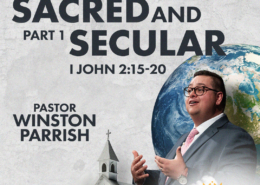 https://www.tbcasheville.org/wp-content/uploads/2024/05/ErasingtheLineBetweenSacredandSecular_Part3-mp3-image.png
1080
1080
Andrew W
https://www.tbcasheville.org/wp-content/uploads/2022/09/TBCStackLogo-White.svg
Andrew W2024-05-12 00:00:082024-05-17 13:15:09Erasing the Line Between Sacred and Secular, Part 3
https://www.tbcasheville.org/wp-content/uploads/2024/05/ErasingtheLineBetweenSacredandSecular_Part3-mp3-image.png
1080
1080
Andrew W
https://www.tbcasheville.org/wp-content/uploads/2022/09/TBCStackLogo-White.svg
Andrew W2024-05-12 00:00:082024-05-17 13:15:09Erasing the Line Between Sacred and Secular, Part 3
Winston Parrish
This week we look at one of the most consequential men to live since the time of Christ. His books, his sermons and his influence in my life is immeasurable. This is an excerpt of his bio from the Christian Hall of Fame:
Charles Spurgeon
 1834 – 1892
1834 – 1892
Many have declared Spurgeon to be the greatest preacher since the apostle Paul. He was an English Baptist preacher born at Kelvedon, Essex, June 19, 1834. His father was an independent minister. After attending Colchester school, young Charles was appointed usher in a school at Newmarket in 1849 and formally joined the Baptists in 1850. He was converted at age sixteen, and immediately began preaching.
Spurgeon’s extraordinary ability was immediately recognized and he began pastoring the first church in 1852. In 1854 he took a small deteriorating church in south London. At once throngs of people were attracted to the small church. After moving several times (1859-1861) the congregation finally built the great Metropolitan Tabernacle, seating six thousand people. Here Spurgeon, who had become the most popular preacher in London, had his pulpit for the rest of his life.
Spurgeon preached every sermon with devotion to absolute truth, rooted in Bible Doctrine. He repudiated baptismal regeneration, and distrusted the rising tendencies of Modern Biblical criticism. Beginning in 1855, he published a sermon each week. In 1865 he began to edit the monthly Sword and Trowel. He excelled not only in preaching but also in public prayer. His membership included over five thousand, and it is said that he knew them all by name. He observed the Lord’s Supper almost every Sunday either at home or in the tabernacle. He led in the establishment of many benevolent institutions. Spurgeon always appealed to the Scriptures as authoritative, and his sermons were based on Old Testament texts as well as those from the New Testament. His simplicity and his voice were great assets to preaching. Spurgeon excelled in his use of illustrations and anecdotes. He was criticized in his own day for his use of illustration, but like Jesus, Spurgeon believed in appealing to both eye and ear. He looked on the Gospel as a “gift of God to the imagination.” In one particular lecture he said that a sermon without illustration is like a house without windows.
Before his death in 1892 he had published more than two thousand sermons and forty-nine volumes of commentaries, sayings, anecdotes, illustrations, and devotions.
Pastor Winston
Trinity Baptist Church
Asheville, North Carolina
United States of America
Upcoming Events
Sweethearts Banquet
February 17th at 7:00 PM $20 per couple
Delicious Meal, Fellowship, and child care for ages K-6th
Music by Amber & Garrett Saunders
Sign up here
Launch Kids – Game Night
February 17th drop-off begins at 6:30 PM
Anna’s Heart
Anna’s Heart ladies join us on Saturday, February 18th at 11:00 AM in the conference room. We will have a special devotion, delicious brunch foods and a “Secret Valentine” gift exchange. Bring a $10 wrapped gift to exchange.
CR Sunday February 19th
4 Year Ministry Anniversary. “Jesus can set you free”
Griefshare
Healing from your grief is not easy. We want to help you on your journey toward recovery. Weekly Grief support group starts back on Thursday, March 2nd 5:45 PM in the Couples Connection. Sign-up online at griefshare.com
Smoky Mountain Jubilee
March 16th-17th
Leconte Center Pigeon Forge, TN
Dr. Ralph Sexton, Dr. Joe Arthur & Pastor CT Townsend will be all preaching, special music including the Primitive Quartet and the TBC Jubilee Choir.
More information can be found at smokymountainjubilee.com
If you plan to attend would you help us get a headcount by registering. It is completely free we just need to know how many people to prepare for.
Weekly Schedule
Sundays
• 8:00 AM Morning Worship
• 9:30 AM Sunday School
• 10:30 AM Morning Worship
Tuesdays
• 6:30 PM Choir & Media Rehearsal
Wednesdays
• 10:00 AM Morning Worship – Heritage Keepers
• 12:00 PM Heritage Keepers Lunch
• 5:30 PM Family Meal
• 6:30 PM Midweek Worship
Thursdays
• 6:30 PM Ladies Bible Study
• 6:30 PM Men’s Bible Study
• 6:30 PM Celebrate Recovery
Thank you
Thank you so much for the flowers and cards. We appreciate our church family. God bless you all! You all are very dear to our heart. ~ Jim & Judy Rhew Lanning & the Rhew family
Thank you for the flowers, cards, and prayers as I went through another journey. God heard and answered your intercessory prayers. 1 John 5:14. We are grateful & humbled.
~ Bill & Sheila Sizemore
Thanks for your kindness during the passing of our dad, Nelson Jordan. The basket of white roses were lovely. ~ Judy McCallough & family
Missionaries for February
• Phyllis Newby – Haiti missionhaiti001@gmail.com
• Joann Woody -Prisons- USA – joannawoody@hotmail.com
• Mountain Area Pregnancy Support – Asheville – www.my pregnancy.com
• Toru Marshall – Cuba/International toru@nowministries.us
• Tim Meyer – Australia – meyer@obomission.org
• Roloff Home – USA – peoplesatroloff@gmail.com
Church Cookbook
Our church family has compiled many recipes to share this cookbook with you, from our kitchens to your home!
All proceeds go back into the Ladies Ministry of Trinity Baptist Church.
Ministry Corner
Launch Kids’ Ministry
Trinity Kids’ Church Sundays at 10:30 AM in the lower level, for grades K4-5th.
Trinity Kids’ Launch Wednesdays in the lower level of the Student Building, drop-off starting 6:15 PM.
Thrive Students
6th – 12th Grade meet Wednesdays at 6:30 PM in the Student Building.
Heritage Keepers—If you are 55+, please join us on Wednesday at 10:00 AM in the Sanctuary for a message from our Pastor Emeritus Ralph Sexton. After service we will go to the Family Life Center for a light lunch and fellowship.
Ladies Ministry— Thursday Evening Bible Study – 6:30 PM Tuesdays in the Student Building.
Men’s Ministry Thursday Evening Bible Study – 6:30 PM in the main sanctuary.
Celebrate Recovery is a Christ centered 12 step recovery program for anyone struggling with hurt, pain, or addiction of any kind. CR meets Thursdays at 6:30 PM in the Family Life Center..
New Members Sunday School Class -If you are interested in joining TBC, join us on Sundays at 9:30 AM in Modular
J-102.




